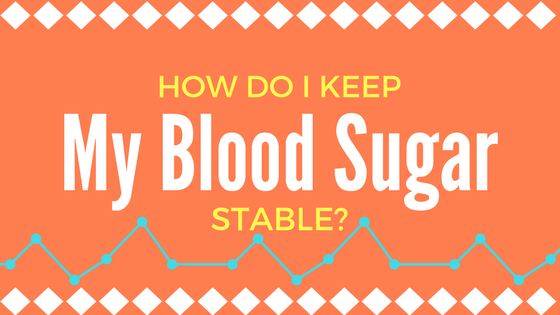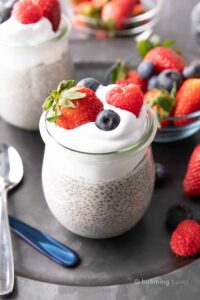Go Sugar-Free With 12 recipes
In our modern society, sugar has become a ubiquitous and addictive ingredient in our diets. From the tempting treats that line the supermarket shelves to the sweetened beverages we consume daily, sugar has infiltrated our lives and contributed to numerous health problems, including obesity. However, by embracing a sugar-free lifestyle, we can experience a plethora of benefits, not only for our overall health but also for shedding unwanted pounds. In this article, we will explore the advantages of going sugar-free, the initial effects on the body, and how it aids in reducing fat.

The Benefits of Going Sugar-Free
Improved Weight Management:
One of the most significant advantages of eliminating sugar from your diet is its impact on weight management. Sugar-laden foods and beverages are calorie-dense and provide little nutritional value, leading to weight gain over time. By cutting down on sugar, you reduce your overall caloric intake, which can help create a calorie deficit necessary for weight loss.
Stable Blood Sugar Levels:
Consuming excessive amounts of sugar causes blood sugar levels to spike and crash rapidly, leading to energy fluctuations and cravings. By eliminating sugar, you can achieve more stable blood sugar levels, promoting sustained energy and reducing the desire for constant snacking.
Reduced Risk of Chronic Diseases:
High sugar intake is linked to an increased risk of chronic diseases such as obesity, type 2 diabetes, heart disease, and certain types of cancer. Going sugar-free can significantly lower your risk of developing these conditions and promote long-term health.
The Initial Effects on the Body
When you first embark on a sugar-free journey, your body may undergo a series of initial effects as it adjusts to the absence of sugar:
Withdrawal Symptoms:
Sugar can be addictive, and removing it from your diet may result in temporary withdrawal symptoms such as cravings, mood swings, and fatigue. However, these symptoms typically subside within a week or two as your body adapts to its new sugar-free state.
Increased Energy Levels:
As your body breaks free from the sugar roller coaster, you’ll experience more consistent and sustained energy levels throughout the day. This newfound energy can boost productivity and motivation.
Improved Mental Clarity:
Sugar crashes often lead to brain fog and difficulty concentrating. By eliminating sugar, you can experience enhanced mental clarity, improved focus, and heightened cognitive function.
How the Body Reacts When You Go Sugar-Free
Enhanced Insulin Sensitivity:
Constant sugar consumption can lead to insulin resistance, a condition where the body’s cells become less responsive to insulin. By cutting out sugar, insulin sensitivity improves, allowing for better blood sugar control and decreased risk of developing type 2 diabetes.
Decreased Inflammation:
Excessive sugar intake can contribute to chronic inflammation, which is linked to various health issues, including obesity. Going sugar-free can help reduce inflammation markers in the body, supporting overall health and well-being.
Overall Benefits for People Who Are Obese
Weight Loss:
Obesity is a complex condition, and reducing sugar intake alone may not solve the problem entirely. However, adopting a sugar-free lifestyle can significantly contribute to weight loss efforts. By eliminating sugar, you reduce excess calorie intake and minimize cravings, making it easier to adhere to a healthier eating plan.
Improved Metabolic Health:
Obesity often leads to metabolic abnormalities, such as insulin resistance and elevated triglyceride levels. Going sugar-free can help improve these markers, promoting a healthier metabolism and reducing the risk of metabolic syndrome.
Decreased Fat Accumulation:
Sugary foods and beverages contribute to fat accumulation, particularly visceral fat around the abdominal organs. By eliminating sugar, you reduce the intake of empty calories and promote fat loss, leading to a reduction in overall body fat, including visceral fat. This reduction in fat accumulation not only improves physical appearance but also decreases the risk of obesity-related health conditions.
Increased Satiety:
Sugar provides little satiety and can lead to overeating and excessive calorie consumption. In contrast, a sugar-free diet rich in whole foods, lean proteins, and healthy fats promotes satiety and helps control hunger, making it easier to maintain a calorie deficit and achieve weight loss goals.
Improved Nutritional Intake:
Often, sugar-rich foods are nutrient-poor, lacking essential vitamins, minerals, and fiber. By eliminating sugar and focusing on whole, unprocessed foods, those struggling with obesity can improve their nutritional intake. This promotes better overall health and supports the body’s natural ability to manage weight.
It was my Best Decision to go Sugar-Free
Choosing to go sugar-free can be a transformative step towards better health, particularly for individuals struggling with obesity. By eliminating sugar from your diet, you can experience a range of benefits, including improved weight management, stable blood sugar levels, reduced risk of chronic diseases, and decreased inflammation. Going sugar-free supports enhanced insulin sensitivity, decreased fat accumulation, increased satiety, and improved nutritional intake. Remember, adopting a sugar-free lifestyle should be accompanied by a well-balanced diet, regular physical activity, and consultation with a healthcare professional, particularly for individuals with underlying health conditions.
Go Sugar-Free With 12 recipes
Baked Lemon Herb Chicken:
Marinate chicken breasts in a mixture of lemon juice, olive oil, and herbs, then bake until tender and juicy.
Quinoa Salad with Vegetables:
Combine cooked quinoa with a variety of fresh vegetables like cucumber, bell peppers, cherry tomatoes, and herbs. Dress with lemon juice and olive oil.
Zucchini Noodles with Tomato Sauce:
Use a spiralizer to turn zucchini into noodles and serve with a homemade tomato sauce made from fresh tomatoes, garlic, and herbs.
Baked Salmon with Dill:
Season salmon fillets with salt, pepper, and fresh dill. Bake until flaky and serve with steamed vegetables.
Cauliflower Fried Rice:
Pulse cauliflower in a food processor until it resembles rice grains. Sauté with mixed vegetables, soy sauce, and a protein source like tofu or shrimp.
Green Smoothie:
Blend together a handful of spinach or kale, a frozen banana, unsweetened almond milk, and a tablespoon of nut butter for a nutritious sugar-free smoothie.
Grilled Shrimp Skewers:
Thread shrimp onto skewers, brush with olive oil, sprinkle with spices, and grill until cooked through. Serve with a squeeze of lemon.
Avocado Egg Salad:
Mash ripe avocados and mix with hard-boiled eggs, diced celery, diced red onion, and a squeeze of lime juice. Enjoy as a filling and healthy salad.
Roasted Brussels Sprouts:
Toss Brussels sprouts with olive oil, salt, and pepper, then roast until crispy and golden brown.
Greek Yogurt Parfait:
Layer plain Greek yogurt with fresh berries, unsweetened granola, and a sprinkle of cinnamon for a protein-packed and sugar-free breakfast or snack.
Vegetable Stir-Fry:
Sauté a variety of colorful vegetables like broccoli, bell peppers, snap peas, and mushrooms with garlic and low-sodium soy sauce.
Chia Pudding:
Mix chia seeds with unsweetened almond milk and a drop of vanilla extract. Let it sit overnight in the refrigerator, then top with fresh fruit or nuts before serving.
Remember to adjust the recipes to your taste preferences and dietary needs. Enjoy these delicious and nutritious sugar-free options!
Also, Visit:
https://youtu.be/Ufm0yPA-kWc
https://youtu.be/tic7X3ET4gE



















Pingback: Enjoy these 6 Sugar-Free Desserts!